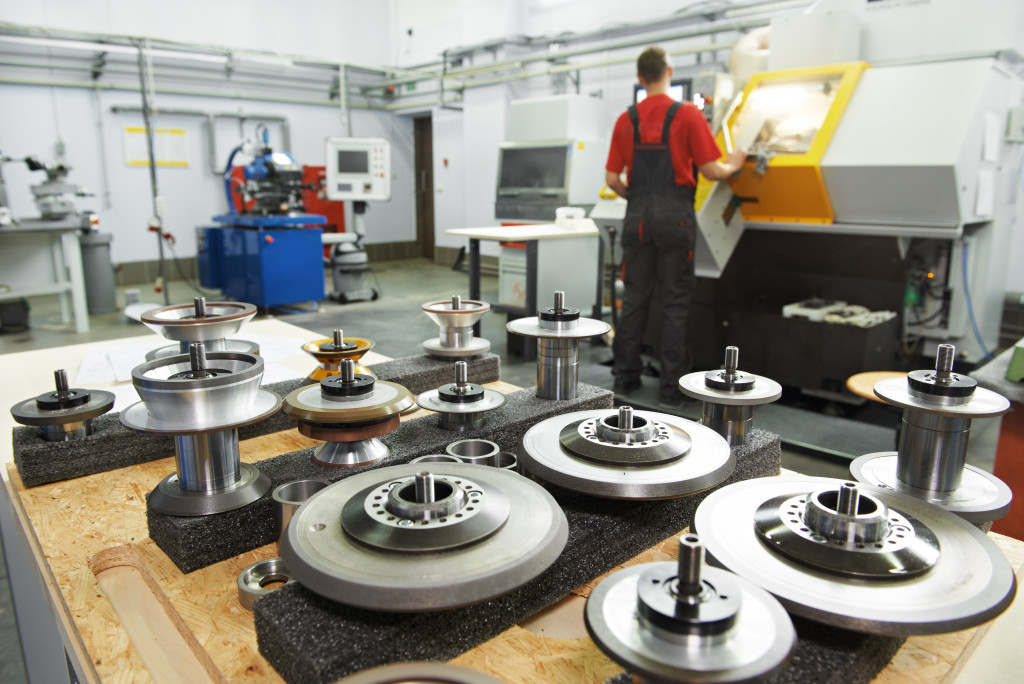The manufacturing industry is evolving. Consumer demand, new technologies, and global competition are changing how manufacturers do business. To stay competitive and meet the needs of consumers, manufacturers must embrace new technologies and adapt their processes. Here are some of the ways technology is changing the manufacturing industry:
1. Advanced Manufacturing Technologies
One of the most significant ways technology is changing the manufacturing industry is through the use of advanced manufacturing technologies. Advanced manufacturing technologies (AMTs) refer to a broad range of technologies that can be used to improve manufacturing processes.
AMTs include everything from 3D printing to robotics to big data and analytics. Not only do these technologies improve efficiency and productivity, but they also allow for greater customization and personalization in the manufacturing process. For example, the use of electrical control panels in the manufacturing process allows for precise control and monitoring of electrical systems, improving overall efficiency and safety.
2. Improved Supply Chain Management
Technology is also changing how manufacturers manage their supply chains. Using technologies such as cloud computing and big data analytics allows for greater communication and coordination among all parties in the supply chain. This leads to improved efficiency and accuracy, as well as the ability to respond quickly to changes in demand or supply.
You may also see the use of drones and robots in the supply chain for tasks such as inventory management and delivery. No longer restricted by geography or limited manpower, these technologies allow for a more efficient and streamlined supply chain.
3. The Use of Big Data and Analytics
Another way technology is changing manufacturing is through the use of big data and analytics. Big data refers to large data sets that can be analyzed to reveal trends and patterns. Manufacturers use big data to track production data, understand customer behavior, and optimize operations. Analytics is a tool that helps manufacturers make sense of big data.
When analyzed correctly, big data can offer insights that can improve decision-making and help manufacturers anticipate and meet consumer demand. It also allows for a more personalized approach to manufacturing, as data can be used to customize products and better understand individual customer needs.
4. Enhanced Quality Control

Technology is also improving the way manufacturers approach quality control. Technologies such as automation and robotics can improve accuracy and consistency in the manufacturing process, leading to higher product quality. Additionally, technologies such as 3D printing allow for faster prototyping and testing, allowing manufacturers to quickly identify and address potential product issues before they hit the market.
Not only the quality of the products themselves but technology is also improving quality control in terms of safety and compliance. Technologies such as RFID tracking allow for greater oversight and monitoring of supply chain processes, ensuring compliance with industry regulations.
5. The Growth of eCommerce
Technology has also changed the way consumers purchase goods. Previously, shoppers would go to physical stores to acquire products they required or desired. However, more and more consumers are buying things online these days. This transition has had a significant impact on the manufacturing industry as a whole.
To meet consumer demand, manufacturers must now focus on developing eCommerce-friendly products and packaging. Additionally, manufacturers must invest in digital marketing strategies to promote their products online. This shift towards eCommerce has also increased customization and personalization, as consumers can now easily purchase personalized or customized products online.
6. The Rise of Smart Factories
The combination of advanced manufacturing technologies and the Internet of Things (IoT) is leading to the development of smart factories. In a smart factory, machines are interconnected and can communicate with each other, allowing for greater coordination and efficiency in the manufacturing process.
Smart factories also allow for real-time monitoring and data analysis, enabling manufacturers to make instantaneous adjustments and improvements in their operations. The end result is increased productivity and a more efficient manufacturing process.
Overall, it is clear that technology is having a significant impact on the manufacturing industry. From improving supply chain management to enhancing quality control, technology offers numerous benefits for manufacturers, leading to increased profitability and success in the marketplace.
Technology is changing the manufacturing industry in several ways. From advanced manufacturing technologies to big data and analytics to the growth of eCommerce, manufacturers must adapt their processes to stay competitive. By embracing new technologies, manufacturers can improve quality control, increase production efficiency, reduce costs, and better meet the needs of consumers. So, it is clear that technology is essential for manufacturers who want to stay ahead in the ever-evolving marketplace.
